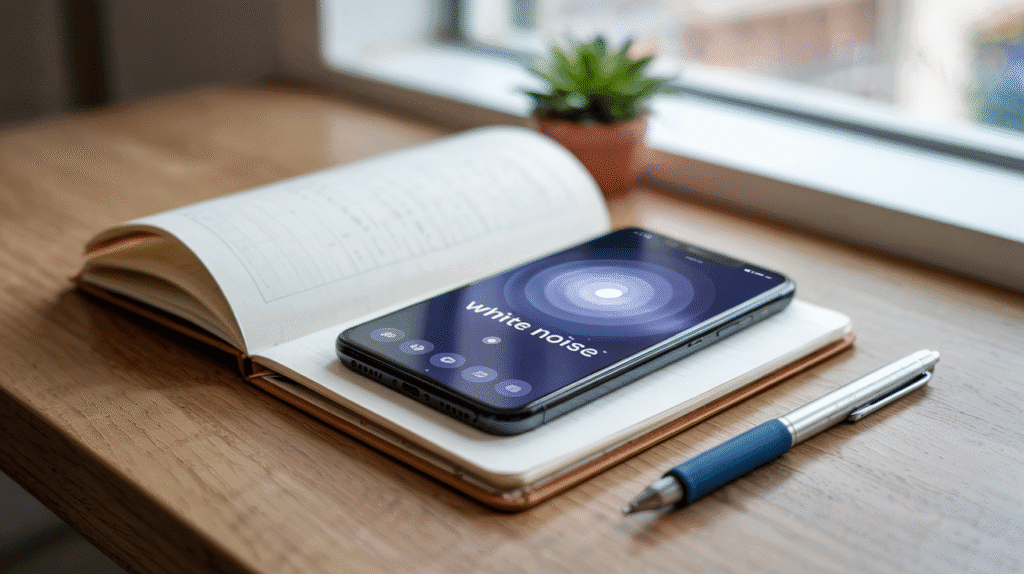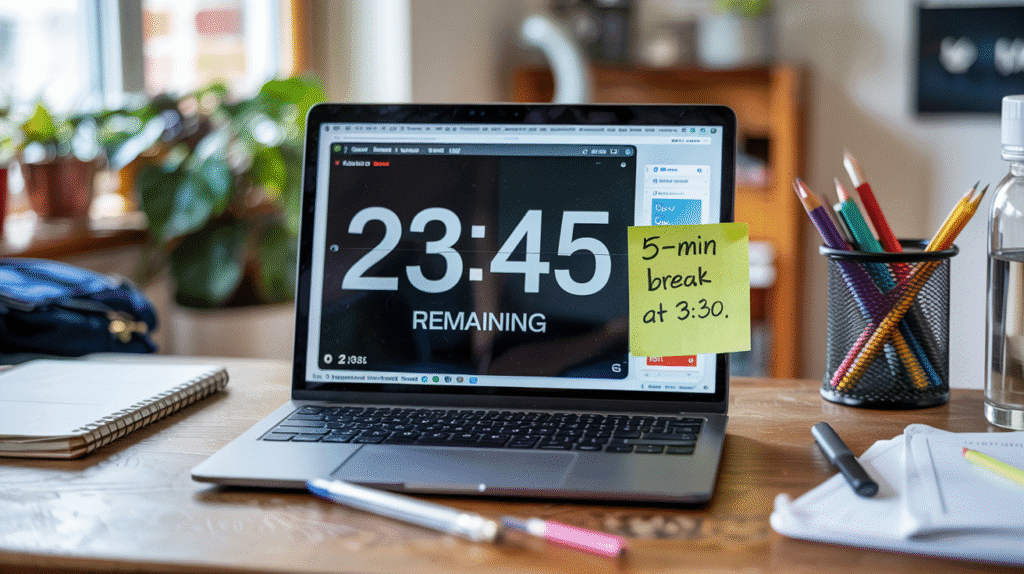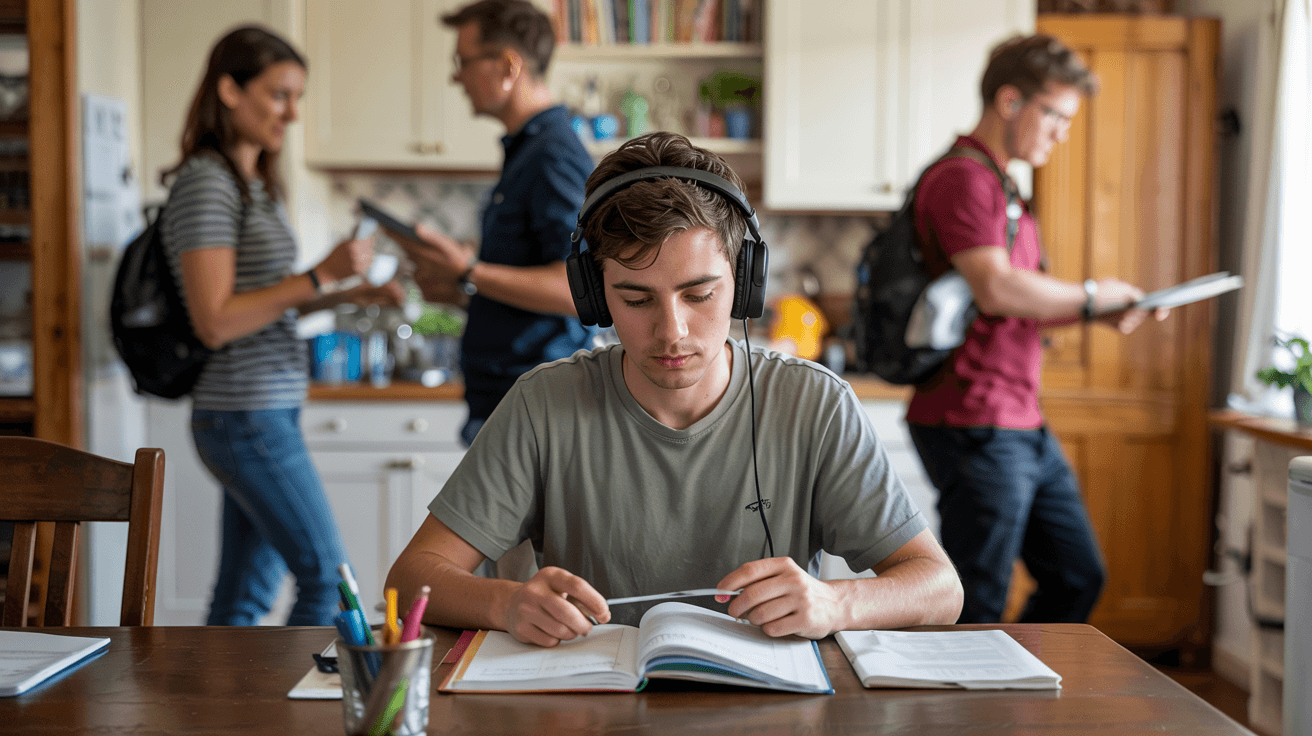Studying is hard enough in silence. But trying to focus in a noisy house—with family talking, TV blaring, pets barking, and doors opening every five seconds—can feel nearly impossible.
Whether you’re a student, a parent going back to school, or someone prepping for exams at home, the good news is: you can study effectively in a loud environment. You just need to adjust the strategy—not expect perfection.
Here’s how to make focus possible, even with the chaos around you.
🎧 Tip #1: Use Noise to Cancel Noise
If you can’t eliminate sound, try to replace it.
Noise-canceling headphones are great, but not essential. You can use:
- White noise apps (Rainy Mood, Noisli, Smart Noise)
- YouTube soundscapes (cafés, libraries, rainfall)
- A simple desk fan or air purifier as background sound
The goal is to block random noise with predictable, steady sounds your brain can ignore.

📍 Tip #2: Create a Focus-Friendly Study Zone
You don’t need a private office to concentrate—you just need visual signals and mental anchors.
Try this:
- Pick a corner of the house that’s less trafficked
- Use consistent study tools: same chair, same notebook, same mug
- Add a sign or signal (like wearing headphones or a sticky note that says “Focusing”)
This builds a routine your brain starts to recognize as study time.
⏱️ Tip #3: Use Short Focus Blocks with Breaks
Studying in noise is exhausting. Don’t push through long sessions—use small blocks of deep focus.
Try a variation of the Pomodoro Technique:
- 25 minutes of focus
- 5–10 minutes of rest (preferably away from the noise)
- Repeat up to 3 times, then take a longer break
This approach helps you work with your environment, not fight against it.
📋 Tip #4: Plan “Distraction Slots” Into Your Routine
You will get distracted—and that’s okay.
Instead of resisting it, plan micro-breaks:
- Check your phone every hour (not every 5 minutes)
- Walk around, stretch, or talk to someone quickly
- Use the pause to reset, not derail
By acknowledging distractions, you reduce guilt—and make it easier to refocus.

🧠 Tip #5: Manage Expectations and Measure Progress Differently
A noisy house won’t allow perfect focus—and that’s not failure.
Redefine success as:
- Completing one focused study block
- Finishing a single chapter
- Retaining a key concept despite interruptions
When you focus on progress over perfection, you’ll feel more in control—and more motivated to try again tomorrow.

Daniel Carter believes that small daily changes lead to extraordinary results. Through simple and effective strategies, he inspires readers to take control of their routines, overcome procrastination, and unlock their full potential.











